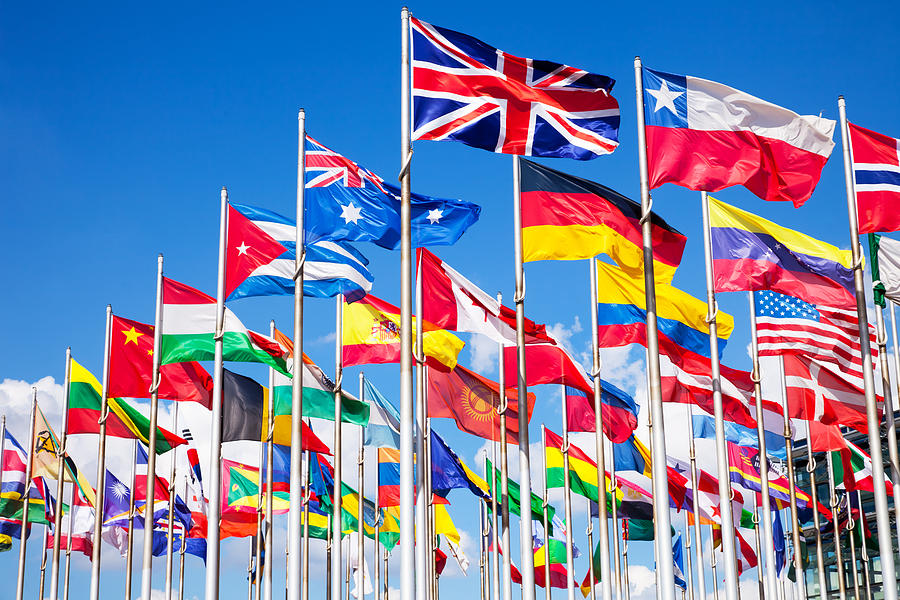The goals of the strategy
Any good strategy must begin with a clear set of objectives, but likeminded allies and partners have not yet articulated a clear set of goals for their competition with China. The return of great-power competition is a correct diagnosis of the new security environment, but it does not tell anyone what to do about it. Articulating clear goals is difficult, but it is more manageable in this case by nesting the challenge within a broader framework, and by distinguishing between long- and short-term goals.
At the broadest level, the goal of likeminded allies and partners’ strategies should be to revitalize, adapt, and defend the rules-based international system. This system—created, expanded, and defended by likeminded allies and partners since the end of World War II—has provided the world with unprecedented levels of global peace, prosperity, and freedom. The system has been too successful to abandon. At the same time, the world has changed since the system was created in 1945 and expanded at the end of the Cold War in 1991. It would be unwise to cling to a dated system in a changed international security environment. It must, therefore, be revitalized and adapted for a new era.
With this broader framework in mind, consider China. China presents the greatest threat to the rules-based international system and likeminded allies and partners must defend against this challenge. A revitalized and adapted rules-based system will not flourish to its greatest extent if China, the world’s second-largest economic and military power, remains outside the system or is actively attempting to undermine it. This brings this discussion to the goals for a global strategy for China.
In the long term, likeminded allies and partners should seek a stable relationship with China that avoids permanent confrontation and permits cooperation on issues of mutual interest and concern, and that makes China a cooperative member of a revised and adapted rules-based system. The revised system should respect individual liberties, societal openness, and China’s legitimate interests.
In a sense, policymakers have known this to be the correct end state for decades. This is what they envisioned when they talked about making China a “responsible stakeholder.” The strategy for China, therefore, is only a component of a broader strategy for revitalizing, adapting, and defending a rules-based international system.

The problem is that this scenario will be difficult to actualize with Xi as president and the current generation of CCP leadership in power. As discussed above, the incorporation of China into the global economic system has not been sufficient to moderate Chinese behavior. Instead, as China has become wealthier and more powerful, Xi and the current generation of leaders have decided to launch China on a new and more assertive course. They are selectively challenging key aspects of the rules-based system and the interests of likeminded allies and partners. These long-term objectives may only be achievable after a generation or more, when new Chinese leaders, with a different worldview, come to power.
To achieve these long-term objectives, therefore, policymakers will need to convince the Chinese leadership to change course.
In the short term, likeminded allies and partners should prevent China from undermining the rules-based system in the security, economic, and governance domains. They should defend their interests and international standards while affording space for and inviting responsible Chinese behavior. This will put them in a stronger position regardless of how China behaves. They must also seek to impose costs on Chinese actions that violate international rules and norms, with the objective of shaping Chinese behavior in a positive direction.
Likeminded allies and partners need to make China’s leadership understand that challenging them and the rules-based system is detrimental to Beijing’s own interests. They need to show Beijing that this new, more confrontational course is simply too difficult and too costly. Over time, likeminded allies and partners can convince Beijing that its own interests are better served by playing along with the rules-based system, rather than trying to challenge it. To incorporate China into a revised rules-based system, likeminded allies and partners should not compromise on their core principles. Rather, they should nurture expectations that China should meet international standards of behavior and practice consistent with widely-shared principles.
Some might argue that this strategy is a veiled call for regime change in China, but that would be a misreading. While a democratic government in China that represents and respects the human rights of its people would be a desirable long-term goal, this strategy will be successful if and when a more cooperative Chinese leadership comes to power in Beijing, whether or not it stands behind the CCP banner.
Within the previously identified domains of action, this strategy proposes the following goals:
- Security: Maintain global peace and stability by fostering a favorable balance of military power for likeminded allies and partners capable of deterring and, if necessary, defeating Chinese aggression.
- Economy: Facilitate a global economic recovery and advance global prosperity by maintaining open and market-based economies at home and abroad, while resisting unfair economic practices and the spread of authoritarian, state-led capitalism.
- Governance: Maintain freedom by revitalizing democracy in existing democratic states, preventing CCP efforts to undermine democratic practices, and supporting human rights, democracy, and good governance in other states, including in China.
Image: Chinese President Xi Jinping shakes hands with U.S. Vice President Joe Biden (L) inside the Great Hall of the People in Beijing December 4, 2013. REUTERS/Lintao Zhang/Pool (CHINA - Tags: POLITICS)